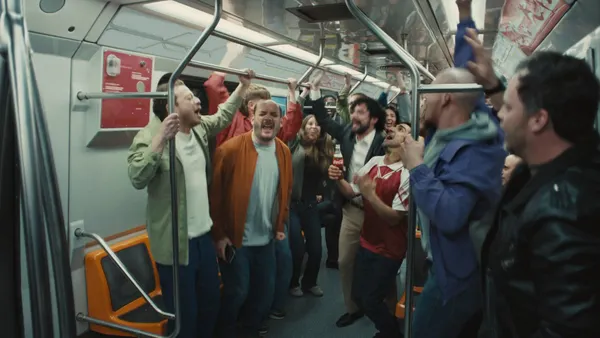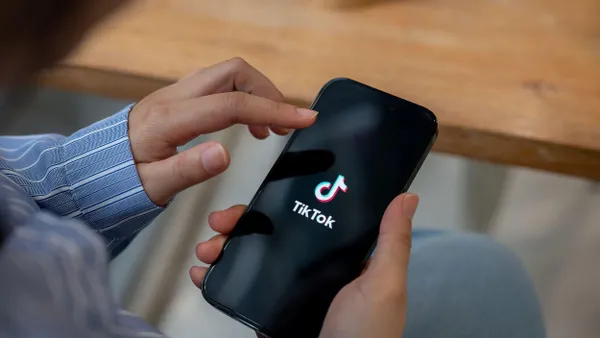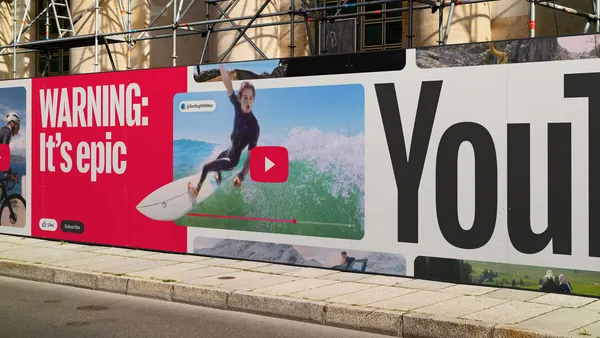Brief:
- Amazon’s patent on 1-click ordering expired this week, opening up the possibility that mobile ordering will become more consistent among apps and websites. The patent, first granted in 1999, was controversial with critics saying it was too broad, while other e-commerce sites had to pay licensing fees to Amazon or face the possibility of an infringement suit, CNet reported.
- The news means it will now be easier for retailers to implement their own 1-click ordering capabilities, thereby streamlining purchases for customers and potentially reducing cart abandonment.
- For Amazon, the expiration of its 1-click patent means that competitors can use the transaction method, but as founder and CEO Jeff Bezos said, his company is mostly focused on providing the best online shopping experience out there. With its Prime subscription service, the company also seeks to add value to the customer experience with two-day shipping, streaming music and critically acclaimed video that can’t be found elsewhere.
Insight:
Mobile continues to be a strong performer for Amazon, with mobile orders more than doubling for this year's Amazon Prime Day. Amazon's 1-click ordering, which streamlines the checkout process, is one of the reasons why the retailer has done so well on mobile. As the company's reach continues to expand to hardware like the Amazon Echo and into stores via its Whole Foods deal, the patent's expiration isn't likely to impact its bottom line.
The good news for mobile retailers is that they can now offer 1-click ordering to customers without paying royalties to Amazon. That should make shopping more consistent among a wider group of mobile websites and apps and reduce friction at checkout.
Mobile commerce continues to grow at a rapid pace, with eMarketer forecasting that U.S. sales will increase more than 50% this year for a total of $102.14 billion. While this is still a drop in the bucket compared to overall retail sales, retailers are struggling with moribund in-store traffic.
A persistent issue for many retailers on mobile is that the traffic volume continues to grow but conversion rates are not keeping pace, in part because the checkout process is cumbersome. The mobile shopping cart abandonment rate can be as high as 78% while on desktop, it hovers around 70%.
“With the expiration of Amazon’s 1-click buying patent, retailers are left with a significant opportunity to leverage similar technologies, a functionality that can help reduce cart abandonment," said Casey Gannon, VP of marketing at Shopgate, in an email statement provided to Mobile Marketer. "For mobile users in particular, cart abandonment is one of the most prevalent challenges retailers face."
The business method patent on 1-click is considered an absurd misreading of patent law, which generally is designed to give an inventors a monopoly on a product for a certain period so that they can reap the financial rewards of their innovations before giving up those rights for common use. As an economist said this week to National Public Radio: “Imagine Wal-Mart patented only making their customers wait in the checkout line once. It's just ludicrous.”
Amazon sued rival Barnes & Noble the month after the patent was issued to prevent the bookseller from using a similar method of handling orders on its website. The companies settled the suit in 2002.
Bezos acknowledged the 1-click controversy, saying in 2000 that patents should have shorter lifespans and arguing that his company’s advantage would in provided better service, price and product selection. The company still held onto the patent.
Meanwhile, mobile payment technology has continued to evolve and improve with a profusion of competing systems such as Walmart Pay, Apple Pay, Android Pay and Samsung Pay. E-tailers can provide quicker transactions using PayPal One Touch, Visa Checkout or Mastercard’s Masterpass.












